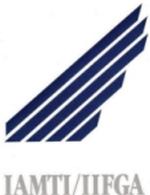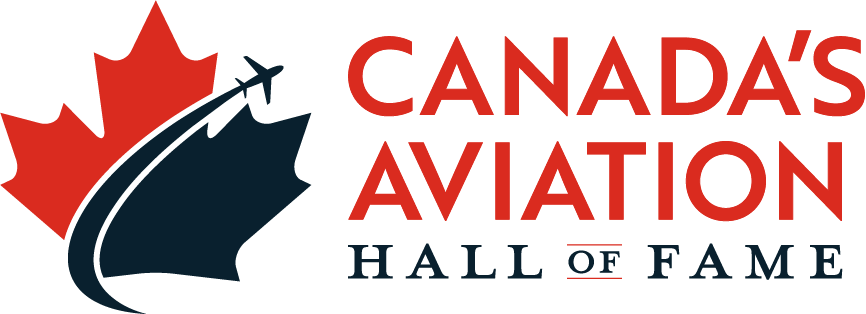International Aviation Management Training Institute (IAMTI)

"As a pioneer in the field of aviation training and development, the International Aviation Management Training Institutes unique and innovative initiatives served as a showcase for Canada's expertise in aviation management and helped to position Canada, and the city of Montreal in particular, as a recognized world leader in international aviation."
During the late 1970s, the Trudeau government identified the aviation industry in developing countries as a priority for Canada's foreign assistance program. The emphasis would be on helping these nations upgrade and improve the management of their domestic aviation industries, a concept later championed by Transport Canada in succeeding governments.
Claude Taylor, then president and CEO of Air Canada, was asked to help spearhead a new training institute that would leverage Canadian expertise in aviation management, especially in the field of security, for the benefit of aviation industry managers in developing countries.
This led to the hiring in 1986 of a founding president and CEO, Michel Desjardins, a senior civil servant with Transport Canada, Lawrence Motiuk as Vice President of Academic Affairs, and the establishment of a Board of Directors chaired by Mr. Taylor and composed of senior aviation industry, government and university representatives from Canada and abroad.
Under Mr. Desjardins' direction, the mandate of the proposed institute was broadened. More specifically, it was "to promote the efficient development of international civil aviation and to advance the management of air transportation systems, primarily through the provision of quality management training programs and training services to aviation organizations from developing and developed countries."
Contribution agreements were reached with the Canadian International Development Agency (CIDA) to provide financial support for students from developing countries to attend the institute's courses. Technical, advisory and other support would be provided by numerous organizations and companies, including the Aerospace Industries Association of Canada, Air Canada, Airshow Canada, Concordia and McGill Universities, the University of Montreal, Georgian College, Transport Canada, Transport Quebec, and several international associations such as the International Air Transport Association (IATA) and the International Civil Aviation Organization (ICAO).
A course curriculum was developed and a small full-time staff hired, with offices and classrooms in Montreal. The International Aviation Management Training Institute (IAMTI), incorporated as a not-for-profit organization, officially opened its doors in early 1987.
IAMTI recognized that success in all three segments of the civil aviation industry - airlines, airports and public administration - requires highly competent management to maximize opportunity and performance. It therefore aimed to develop these capabilities by means of practical, experience-based training programs and advisory services.
In partnership with a host of Canadian experts, IAMTI developed one of the most advanced and comprehensive aviation management curriculums available in the world. More than 100 courses were offered in English, French and Spanish by faculty members from Canada and other parts of the world who were recognized leaders in their fields. Faculty of IAMTI included experts in strategic management; airport financing; aviation law; project management; transportation economics; aviation security; management and training technology; airline marketing; airport privatization; airline maintenance; and information technology, among others.
The training program featured highly innovative computer simulation models to provide hands-on, case-study training to participants, including a simulated airline and airport authority. A learning continuum was also developed, composed of learning modules at the introductory, intermediate and advanced levels.
This training program and courses were later offered internationally through a network of affiliated schools and organizations in South East Asia, Europe and Africa, and the state-of-the-art pedagogical software it developed was shared among numerous institutions on virtually every continent.
In addition to its international influence, IAMTI had an important impact on the Canadian aviation industry. Many managers from airlines, airports, government agencies and other organizations benefited from its management training programs. It forged close relations with several universities, including Georgian College of Barrie, Ontario, to enhance Canadian aviation management education programs. It was also involved in the establishment of an Executive Aviation MBA program at Concordia University.
In response to client demand, IAMTI also established a consulting group which advised several nations on aviation matters, such as the creation of airport systems and authorities.
IAMTI was a unique and innovative Canadian initiative that made a major and lasting contribution to the Canadian and global aviation industries. Its pioneering and high quality training courses and software for the first time encompassed and integrated airline, airport and civil aviation management, showcasing Canadian expertise in the field of aviation management.
It fostered closer partnerships and collaboration among key players in the Canadian aviation industry, including government, corporations and universities. It reaffirmed Montreal's position as an aviation international centre of excellence, adding a "fourth leg" to a foundation established by ICAO, IATA and SITA, the international aviation information technology organization.
IAMTI'S program provided a model and inspiration for other management institutes worldwide. It generated a large number of IAMTI alumni, representing an impressive network of aviation managers from five continents.
In 1999, IAMTI'S activities were taken over by the International Air Transport Association (IATA), which has six strategically located training centres worldwide, including Montreal. IAMTI'S legacy of developing leaders in aviation continues to benefit thousands of students each year through lATA's Training and Development Institute.
The International Aviation Management Training Institute (IAMTI) was presented with the Belt of Orion Award for Excellence at ceremonies held in Montreal, Quebec in 2006.
During its first 12 years of existence from 1987 to 1999, IAMTI trained 4,893 managers and aviation professionals from 667 different organizations, including airport authorities, airlines, civil aviation organizations and government agencies. IAMTI clients came from 175 different countries. The breakdown by area was: Latin America and the Caribbean - 25%; Africa - 26%; Asia Pacific - 18%; Europe - 8%; North America - 8% and the Middle East - 5%
